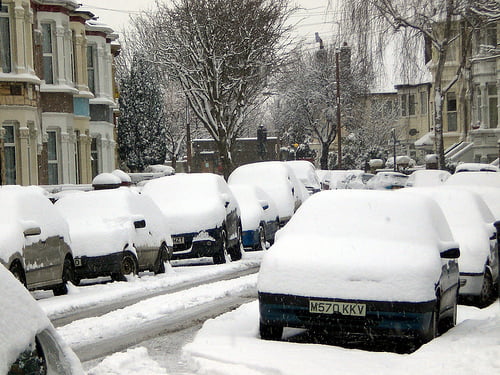

Features
Is our weather getting worse? In short, yes
On Tuesday night, Channel 4 broadcast a documentary exploring the extreme weather events of 2012 and asked the question, “Is our weather getting worse?” Weather should never be confused with the climate or weather ‘events’ for a longer-term trend. Nevertheless, climate change will almost certainly make our weather more extreme.
Using dramatic footage, expert comment and slightly irritating graphics, the programme showed the temperature variations, snowfall, floods, heat waves, droughts, violent storms and more floods of 2012. Our winter could potentially be one of the coldest for many years.
The programme synopsis says, “The year started with storms and gale-force winds tearing across much of the UK, before our driest spring in a century left 35 million people in the UK suffering from drought. In Aberdeen in March, temperatures soared to 23 degrees celsius. But within four weeks, everything had changed. April 15 marked the beginning of our wettest summer on record. Towns such as Hebden Bridge in Yorkshire were flooded not once, but twice, and by the end of August 4,000 homes across Britain had been devastated by floods.”
While the programme explored the issue for nearly an hour, the short answer to the programme’s straightforward question is that our weather is getting, and will get, more extreme (or worse). That means we will experience hotter, colder, wetter and drier weather.
The simple factors are this. The planet is warming. Warmer seas and air means more atmospheric energy. More atmospheric energy means more extreme weather.
A warmer planet means changing weather patterns. The UK benefits from the Gulf Stream and North Atlantic Drift (a powerful, warm, and swift Atlantic ocean current), which means we have historically enjoyed warmer winters than countries on similar longitudes. The behaviour of the Gulf Stream is becoming more erratic and this means our relatively benign weather will become more volatile.
This has practical and immediate consequences. Snowfall and floods cost the economy millions and, more importantly, cost lives. More extreme and volatile weather means crop failures and unstable prices.
For the avoidance of doubt, our climate is changing dramatically and human activity, specifically carbon dioxide emissions from burning fossil fuels, is responsible for the change.
We strongly recommend watching the programme while it is still available.
What do you think of Blue & Green Tomorrow? Complete our short reader survey and be in with a chance to win an iPad mini or a Kindle Fire. Survey closes December 21.
Further reading:
Why climate deniers have no scientific credibility – in one pie chart





























